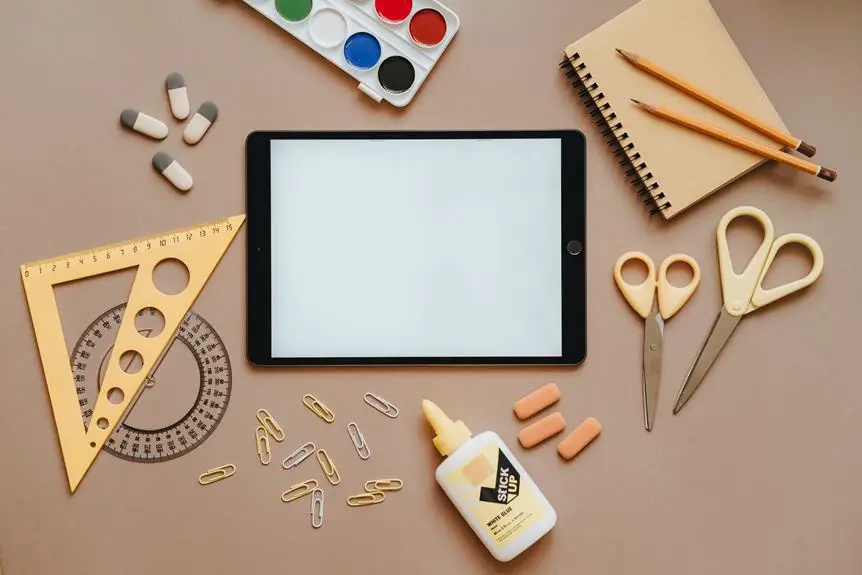Wondering if super glue can do double duty as nail glue? You're not alone. Many people have pondered this very question when faced with a broken or split nail. While the temptation to reach for the nearest super glue may be strong, it's important to understand the potential risks and benefits before proceeding.
In this article, we'll explore the ins and outs of using super glue on nails, including the proper application techniques, safety considerations, and alternative options for nail repair.
By the end, you'll have a clear understanding of whether super glue can indeed serve as a temporary fix for your nail woes.
Key Takeaways
- Super glue can be used as an alternative to traditional nail glue for bonding artificial nails or repairing natural nails.
- Improper application or excessive use of super glue can lead to nail damage, irritation, or allergic reactions.
- Super glue contains harsh chemicals that can cause adverse effects when in contact with the skin or nails.
- Super glue provides quick adhesion, durability, and versatility for temporary nail repairs, but it should not replace regular nail care routines or professional nail treatments.
Understanding Super Glue and Nail Glue
You frequently use super glue for various household repairs, but did you know that it can also double as nail glue? When it comes to super glue application on nails, it's essential to understand the potential nail health implications. Super glue, also known as cyanoacrylate adhesive, can be used as an alternative to traditional nail glue, especially in emergencies. However, it's crucial to exercise caution and apply it sparingly. While super glue can effectively bond artificial nails or repair natural nails, its application requires precision to avoid skin contact and potential allergic reactions.
Understanding the implications of using super glue on your nails is crucial for maintaining nail health. Excessive use or improper application of super glue can lead to nail damage, irritation, or allergic reactions, which may compromise the overall health of your nails. It's important to note that while super glue can serve as a quick fix, it shouldn't replace regular nail care routines or professional nail treatments.
As you explore the potential dual use of super glue, it's essential to prioritize nail health and seek alternative solutions for long-term nail maintenance.
Risks of Using Super Glue on Nails
Using super glue on your nails carries potential risks that can compromise nail health and lead to adverse reactions. It's important to be aware of the potential dangers associated with using super glue as a nail adhesive.
Here are the risks you should consider:
- Adverse Effects: Super glue contains harsh chemicals that can cause adverse reactions when in contact with the skin or nails.
- Nail Damage: Improper application of super glue can lead to nail damage, including weakening, brittleness, and peeling.
- Skin Irritation: Contact with super glue can cause skin irritation and allergic reactions, leading to redness, itching, and discomfort.
- Toxicity: Inhaling the fumes of super glue or allowing it to come into contact with the skin can result in toxicity and health issues.
- Difficulty Removal: Super glue can be challenging to remove from the nails, potentially causing further damage during the removal process.
Understanding these risks is crucial for making informed decisions about using super glue on your nails. Proper application and consideration of these potential dangers are essential for maintaining nail health and preventing adverse effects.
Benefits of Using Super Glue on Nails
Super glue offers durability and quick adhesion when used as a nail adhesive. One of the benefits of using super glue for nail repair is its ability to provide a quick fix for broken or split nails. Instead of waiting for a nail glue to dry, super glue bonds instantly, allowing you to mend a broken nail efficiently. This can be especially handy in situations where you need a fast solution to repair a nail and prevent further damage.
Additionally, super glue forms a strong and long-lasting bond, ensuring that your nail repair holds up well against daily activities.
Another advantage of using super glue on nails is its versatility. While it's not a replacement for traditional nail glue, having super glue on hand can be beneficial in emergencies. It's a quick and effective solution for repairing nails, especially when you don't have access to a nail salon or nail repair kit. However, it's important to use super glue sparingly and carefully to avoid any skin irritation or damage.
When used correctly, super glue can be a valuable tool for nail repair and quick fixes.
Tips for Safely Applying Super Glue on Nails
When applying super glue on nails, ensure careful and precise placement to avoid skin irritation or damage. Safe application and proper removal are essential for using super glue effectively on nails. Here are some tips for safely applying super glue on nails:
- Clean your nails thoroughly before applying super glue to ensure better adhesion.
- Use a small amount of super glue to avoid spillover onto the skin, which can cause irritation.
- Avoid getting super glue on the cuticles or skin around the nails to prevent skin damage.
- Apply the super glue in a well-ventilated area to minimize inhalation of fumes.
- If any super glue gets on your skin, carefully remove it using acetone-based nail polish remover.
By following these tips, you can safely apply super glue on nails without causing harm to your skin.
Removing Super Glue From Nails
To remove super glue from your nails, gently soak them in warm, soapy water. After soaking for a few minutes, carefully try to peel or gently buff away the softened glue using a nail buffer or a soft, fine-grit nail file. Be cautious not to file too aggressively, as this can damage your nails.
If soaking alone doesn't fully remove the super glue, you can also try using an acetone-based nail polish remover. Apply the remover to a cotton ball and hold it against the glued area for a few minutes to help break down the adhesive. Once the glue has softened, gently buff or peel it away, taking care not to damage your nails in the process.
Nail care is essential during this process to prevent any damage to your nails. After removing the super glue, apply a nourishing cuticle oil or cream to rehydrate and protect your nails.
DIY nail repair can be successful, but it's crucial to be gentle and patient when removing super glue to maintain the health and appearance of your nails.
Alternatives to Super Glue for Nail Repair
Looking for alternatives to super glue for nail repair?
Nail-specific adhesives are often recommended for safe and effective nail repairs.
It's important to consider the safety of alternative options, as well as the long-term health of your nails when choosing the right adhesive for repairing cracked or broken nails.
Nail-Specific Adhesives Recommended
If you want to ensure the best results for repairing your nails, consider using nail-specific adhesives instead of super glue. When it comes to nail care and DIY manicures, using the right adhesive can make a significant difference in the outcome. Here are five nail-specific adhesives recommended for nail repair:
- Brush-On Nail Glue: Provides precision application and a strong bond for repairing broken nails.
- Nail Wrap Glue: Ideal for reinforcing weak or damaged nails with a protective layer.
- Nail Repair Powder: When mixed with adhesive, it forms a durable bond that strengthens and repairs nails.
- Nail Adhesive Tabs: Perfect for temporary fixes or attaching artificial nails without damaging the natural nail.
- Nail Gel Adhesive: Offers flexibility and resilience, making it suitable for various nail repair needs.
Safety of Alternative Options
Considering the safety of alternative options for nail repair, you may want to explore specialized nail adhesives to avoid potential risks associated with using super glue. When choosing an alternative to super glue for nail repair, it's important to prioritize safe application and proper removal. Here are a few options to consider:
| Nail Adhesive | Safe Application | Proper Removal |
|---|---|---|
| Nail Glue | Follow manufacturer's instructions for safe and precise application. | Use acetone-based nail polish remover to gently dissolve and remove the adhesive. |
| Nail Wraps | Apply with caution to avoid skin contact. | Soak in acetone to loosen and remove the nail wraps without causing damage to the natural nails. |
| Dual-sided Tape | Ensure the tape is skin-friendly and hypoallergenic. | Carefully peel off the tape without damaging the nail plate. |
Exploring these alternatives can help you find a safer option for nail repair while ensuring proper application and removal techniques are followed.
Long-Term Nail Health
To ensure your long-term nail health, it's essential to prioritize safe and effective alternatives to super glue for nail repair. Proper nail care plays a crucial role in maintaining the health and strength of your nails.
When it comes to DIY nail repair, consider the following alternatives:
- Nail adhesive specifically formulated for nail repair
- Silk wraps or fiberglass for reinforcing weak or damaged nails
- Nail hardeners containing strengthening ingredients like keratin or calcium
- Regular moisturizing and cuticle care to prevent nail brittleness
- Professional nail treatments such as acrylic or gel extensions for severe damage
Frequently Asked Questions
Can Super Glue Be Used to Fix Artificial Nails?
Super Glue should not be used to fix artificial nails. It's not designed for nail care and can cause damage. Instead, consider DIY solutions or alternative adhesives specifically made for nail art to ensure a professional and lasting result.
Are There Any Long-Term Effects of Using Super Glue on Nails?
Using super glue on your nails can pose potential health risks, such as allergic reactions and skin irritation. It's best to opt for nail adhesives specifically designed for artificial nails to avoid long-term negative effects.
Can Using Super Glue on Nails Affect the Growth of Natural Nails?
Using super glue on nails can negatively affect natural nail growth if not applied properly. It's important to use proper application techniques to minimize any potential impact on the growth of your natural nails.
Can Super Glue Cause Allergic Reactions or Irritation on the Skin Around the Nails?
Using super glue on nails can cause skin irritation and allergic reactions. Instead, consider using nail glue alternatives specifically designed for nails to avoid potential skin issues and ensure the safety of your nail application.
Are There Any Specific Types or Brands of Super Glue That Are Safer for Use on Nails?
When looking for safer alternatives for nail repair, it's important to consider specific types or brands of super glue that are formulated for use on nails. These can provide reliable and lasting results for your nail repair techniques.
- How Do You Unwrinkle Chiffon? - April 23, 2024
- What Material Is Best for Hot Weather? - April 23, 2024
- Is Chiffon a Cheap Fabric? - April 23, 2024







